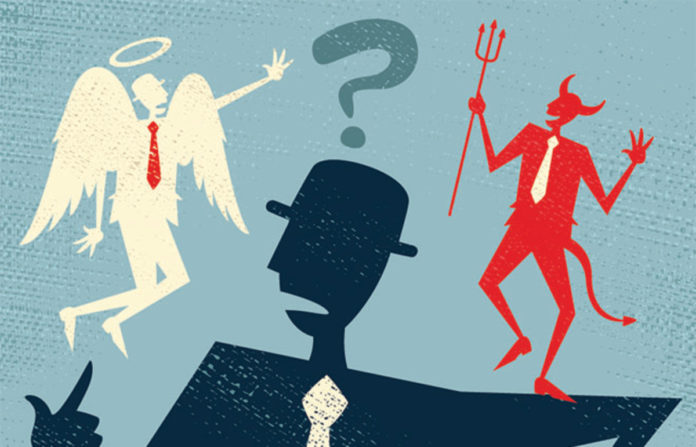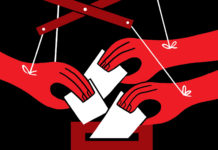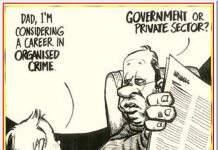There is an old joke that ‘the first rule of economics is that there are no rules in economics’. The reason this is funny is that when you ask different economists the same things, you often get different answers. Do you go with the answers from Milton Friedman and Thomas Sowell, or Paul Krugman and Robert Reich? How do you know who to listen to when different people with doctorates can so easily disagree? How can you find any objectivity at all? And what about morality?
These are all very good questions, and I’m going to answer them, using price gouging as my primary example. I’ve also linked a very good economic article specifically on price gouging, at the bottom of this editorial. After you read this editorial, you might find that article interesting.
There are two facts about economics that make me feel like I almost have to wear an ‘opposite hat’ to think correctly. The first fact is that the short term effects of a given policy are often the exact opposite of the long term effects. The second fact is that in many cases what ‘sounds good’ and what ‘does good’ are the opposite of one another.
The first fact, short term and long term effects often being the opposite of one another, is the primary reason economists often disagree. Conservative economists, like Thomas Sowell, tend to look long term. Liberal economists, like Paul Krugman, tend to look short term. To Paul Krugman, looking long term ignores short term harm, and that is evil. Krugman believes that when negative long term effects show up, we can correct for them, and in the meantime we have to help people NOW! To a conservative economist, like Thomas Sowell, Paul Krugman looks like a kid playing whack-a-mole, where every problem Krugman ‘solves’ creates a whole myriad of bigger problems further down the road. Since each short term solution causes more than one long term problem, Krugman can never hope to keep up with all of them, but he’s OK with that, as a growing number of problems provides Paul Krugman job security.
The Federal Reserve often prints money to bring interest rates down, and yet this causes inflation. What gives? How can the same act both lower and raise interest rates? Simple – the short term effect of printing money is that money suddenly becomes ‘cheap’ in a relative sense, and interest rates go down. As that money moves through the economy, if it is lent at the same rate as the money that was already in the economy, the supply of money in circulation (‘M2 Money’ as economists call it), grows relative to the totality of goods and services produced, and we get inflation. The short term effect of printing money is that interest rates go down, and the long term effect is that interest rates go up. The short term and long term effects are quite literally the opposite of one another.
The short term effect of price gouging is similarly the exact opposite of the long term effect. In the short term, scarcity makes vital resources more expensive. This then creates a profit incentive to take more effort than normal to deliver those scarce resources where they are needed. As the supply of resources rises in response to the higher profits possible, prices go down, often very quickly.
Even right before a disaster, such as we are seeing today in Florida, rising prices encourage business people, who might otherwise lock up their businesses and flee, to stay open longer, selling more of the supplies people need. Higher profits encourage truck drivers to make a few extra runs before staying away. Anti-gouging laws encourage businesses to close sooner before the hurricane comes, and to stay closed longer after the hurricane passes. Anti-gouging laws encourage trucking companies to stop delivering supplies sooner before the hurricane hits, and to start delivering again later after the hurricane passes. And you know what? People gouge anyway. Outside the store that cannot sell $10 of water for $100, you’ll find people who bought all of the water in the store for $10, and they are then selling it for $100.
Is it more moral for some customer to go into a store and buy a bunch of water for $10, and then sell it for $100 in the parking lot, or for the store to charge $100? Neither one sounds terribly moral, but when the store is charging $100, people buy what they think they need, whereas if the price does not move, people buy as much as they can, and only some of the people who hoard sell what they have in the parking lot. Because many of the people who hoard keep what they hoarded, fewer resources are available. Suddenly the guy in the parking lot selling bottled water is charging $200 when the store would have charged $100, were price gouging legal.

When gouging is illegal, you also have the threat of being arrested driving up the price.
Are people who need water better off when $10 worth of water (under normal conditions) costs $100, or when it costs $200?
This brings us to our second fact about economics: what sounds good, and what does good, morally speaking, are often the opposite of one another. This fact actually makes logical sense once you consider that the short term and long term effects are often also the opposite of one another. When you ban gouging, you initially have lower prices while everyone buys everything out of all the stores, and then once the stores are empty, prices go through the roof. When you allow price gouging, you get higher prices right out of the gate, but they never shoot up anywhere near as much as they do where gouging is illegal, and someone who needs water needs it regardless of the price.
You can also use rationing, but that creates long lines, which might be OK after a disaster, but are not a very good idea right before a disaster strikes. Also with rationing, you can only ration what you have available to ration, and with no profit incentive to make resources available, fewer people bring fewer resources where they are needed. Do you know what you do get? You guessed it – people showing up to take rationed items only to sell them, while price gouging.
Once you understand the difference between ‘doing good,’ and ‘feeling good,’ it is suddenly a little more difficult to throw moral outrage at gouging, or at many other things that may sound bad but that do good. You may still have moral outrage at the specific people who gouge, but the process of gouging is far more beneficial to far more people than are any of the alternatives available. It makes perfect moral sense to let people gouge even though it may sound morally wrong to be one of the people doing it.
Some people will read this and say, “I don’t care. Gouging is wrong and I still want it to be illegal.” I can certainly understand that perspective, but it is an emotional perspective and not a logical one; it is a position based on feelings and not facts. To those who want to ban gouging regardless of the economics involved, I say this: people will die to make you feel good, and their lives are worth far more than your feelings.
Anyway – here is the article. It makes a number of great points, specifically on gouging.
























